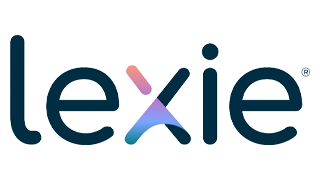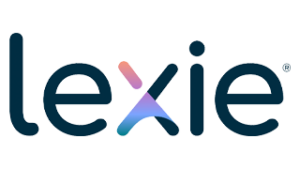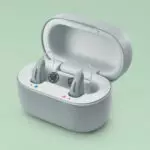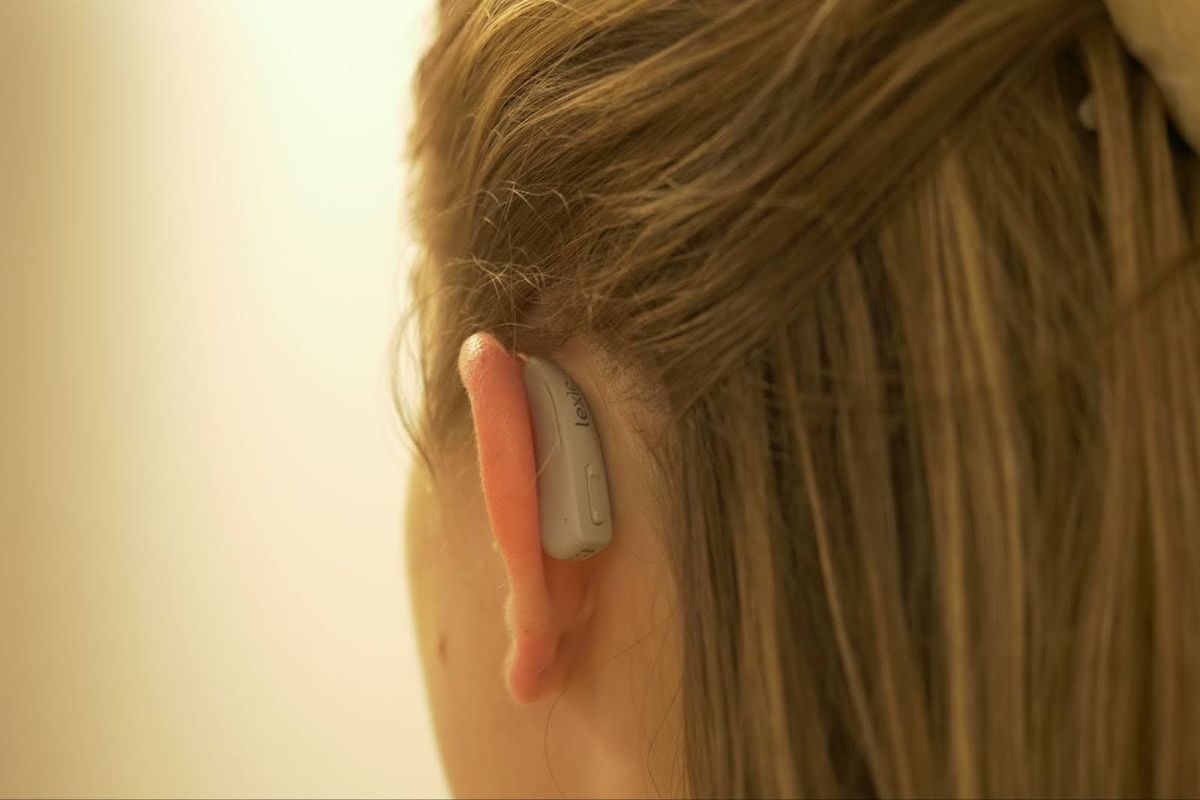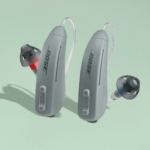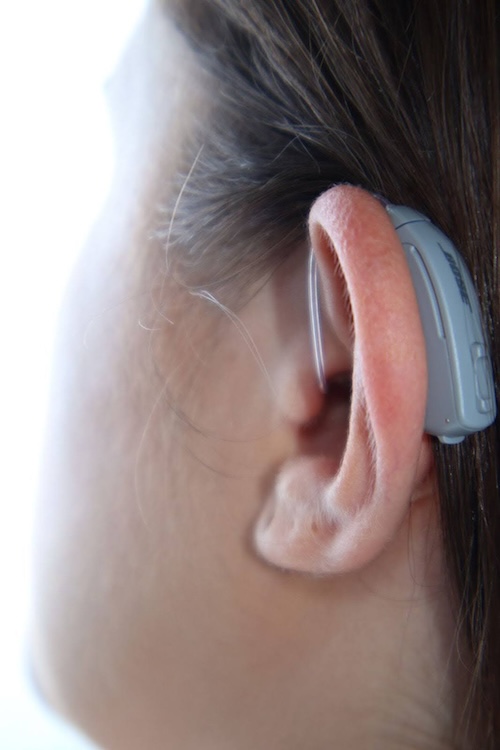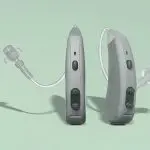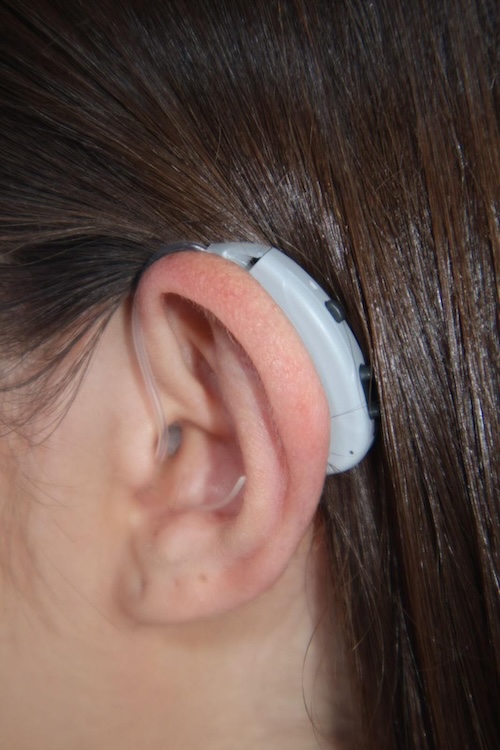Table of Contents
Good hearing is vital for mental health because it enhances communication, maintains social connections, and reduces risks of cognitive decline. If you’re experiencing hearing loss, hearing aids might be a suitable solution. Over-the-counter (OTC) hearing aids, like the styles produced by Lexie, may be an option if you want a quick and affordable solution for mild to moderate hearing loss.
In this review, the Handbook Team analyzes Lexie Hearing’s B2 Plus, B1, and Lumen models. Each model offers unique features tailored to different hearing needs. We will explore each hearing aid’s advantages and potential drawbacks to help you choose the one that best suits your lifestyle, preferences, budget, and auditory needs.
HelpGuide Handbook for Lexie hearing aids
If you only learn five things about Lexie hearing aids, this is what you need to know:
Lexie B2 Plus
Our verdict
The Lexie B2 Plus features a rechargeable battery, customizable settings, and Bluetooth streaming capabilities compatible with iPhones and certain Android devices, making it a top choice for tech-savvy users looking for a moderately priced OTC hearing aid. If you have an Android device, Lexie recommends confirming that your specific device is compatible, as these hearing aids won’t work with all Android devices.
Lexie B1
Our verdict
The Lexie B1 hearing aid combines advanced sound processing with a discreet design at a more affordable price than the B2 Plus. While this disposable battery model lacks some of the high-tech features and customization of higher-end OTC aids, it remains a solid choice if you need reliable hearing support without the frills.
Lexie Lumen
Our verdict
The Lexie Lumen hearing aid is designed for durability and comfort, offering basic functionality in a water-resistant behind-the-ear (BTE) style. While it doesn’t have the advanced features of higher-end aids, its affordability and straightforward design make Lumen a practical choice for those seeking simple and reliable hearing support.
HelpGuide Handbook’s testing methodology




Our testing experience
With FDA approval, the OTC hearing aid market experienced rapid growth with an influx of new companies. While this improves accessibility and helps drive down prices, it also muddies the waters. How do you know which products are trustworthy?
When choosing hearing aids to test, we survey the market, interview hearing health experts, and speak to real hearing aid users. To date, we’ve curated a list of 21 OTC models to test from nine brands: Audien, Audicus, Eargo, Go Hearing, Jabra Enhance, Lexie, Lucid, MDHearing, and Sony. We chose these brands because they have positive reputations and represent a range of prices, styles, and features.
We also tested prescription models from Oticon, Phonak, and Starkey to experience the difference between OTC and Rx (prescription) hearing aids firsthand.
The process looks like this:
Our testers try multiple devices and answer 25 questions about each. We use these answers to look for outstanding performers. For example, the clarity of the Jabra Enhance Select 200 immediately catches our testers’ attention like no other OTC hearing aid.
From our tester
“Jabra Enhance Select 200 has great sound quality for different environments. I can really tell the difference between the listening programs.”
We also look for hearing aids that demonstrate consistent quality in fundamental features, like sound clarity, setup, comfort, and ease of use. Brands that don’t meet those standards didn’t make it onto our best-of list.
No brand’s hearing aids perform flawlessly. For example, one of our testers runs into trouble right away with the MDHearing Volt: the Quick Start Guide doesn’t explain how to turn it on.
We also complete onboarding calls with brand audiologists and talk with customer service representatives over the phone and through chat modules to accurately replicate the buying process and evaluate post-purchase support options.
Finally, we continue our testing by interviewing independent audiologists, hearing instrument specialists, mental health experts, and hearing aid users to get additional perspectives on OTC hearing aids.
The case for OTC hearing aids is particularly compelling. Being able to reach a wider population by increasing accessibility, simplifying the ease of fitting, and reducing the cost barriers … opens the gateway to an array of possibilities [previously inaccessible] due to exorbitant costs and lack of insurance coverage.
Shelley Singh, AuD
Learn more about our hearing aid review methodology.
Our overall thoughts about Lexie hearing aids
Lexie offers a range of affordable OTC hearing aids that will likely meet the basic needs of most people with mild to moderate hearing loss. The Lexi app is a big draw for this brand and a favorite of our testers.
Our favorite things about Lexie hearing aids
- Affordability: Lexie hearing aids are priced competitively from $799–$999, making them accessible to a broad audience, without compromising essential features.
- Innovative technology: Lexie integrates advanced technology in their hearing aids, such as Bluetooth connectivity, which allows you to stream audio directly from devices and adjust settings via the Lexie app. The app is easy to use and offers a hearing test for customizing your devices. All Lexie hearing aids feature bi-directional microphones, background noise reduction, and feedback control.
- Supportive customer service: Our team has found Lexie customer service responsive and friendly. We like that the brand provides lifetime support through the app, allowing users to make video appointments with Lexie professionals. They offer guides, answers to FAQs, and direct support to help users get the most out of their hearing aids.
- Warranty and trial period: All Lexie hearing aids come with a one-year warranty with the option to purchase an additional protection plan and a 45-day money-back guarantee.
Our Lexie hearing aid complaints
- Dependence on disposable batteries: Two of the three Lexie models require disposable batteries, which can be inconvenient.
- Bulkier style offerings: Lexie does not offer any in-the-ear (ITE) or completely-in-the-canal (CIC) models for those who value the most discreet look.
- Lack of advanced tech features: Wireless calling and media streaming are unavailable.
Frequently asked questions
Lexie hearing aids are more affordable than many other brands on the market. Depending on the model, prices range from $799–$999 per pair.
Lexie hearing aids are registered with the FDA, which means they comply with the necessary regulations for OTC hearing aids in the United States and meet the required standards for safety and effectiveness.
Lexie hearing aids operate by capturing sound through a microphone, and then processing the sound to amplify it according to specific hearing loss profiles. They use digital signal processing to make necessary adjustments to the sound before delivering it to the ear through a speaker. This process helps enhance speech clarity and reduce background noise, making it easier for users to hear in various environments. Most Lexie models allow users to customize settings through an app, offering flexibility to adapt to different listening situations. They come with preset listening environments that optimize hearing for scenarios like Noisy indoor or Outdoor settings.
- Fortunato, S., Forli, F., Guglielmi, V., De Corso, E., Paludetti, G., Berrettini, S., & FetonI, A. (2016). Ipoacusia e declino cognitivo: revisione della letteratura. Acta Otorhinolaryngologica Italica, 36(3), 155–166. Link
- Research and Markets. (2023). Over-the-counter (OTC) hearing aids market size, market share, application analysis, regional outlook, growth trends, key players, competitive strategies and forecasts- 2023 to 2031. Link
- OTC Hearing Aids: What You Should Know. FDA Link




